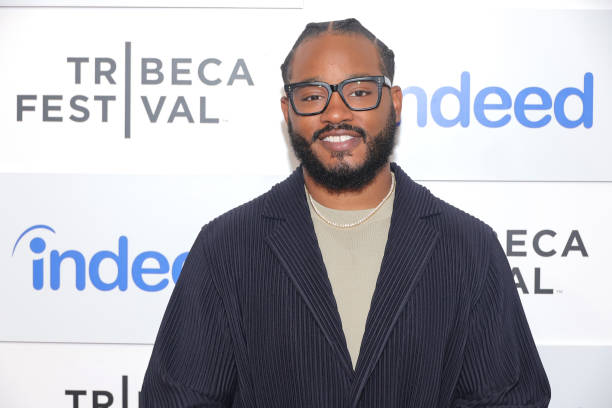Ryan Coogler, the visionary director behind Black Panther, Creed, and Fruitvale Station, has always been a storyteller with deep personal connections to his work. But his upcoming film Sinners marks a significant first in his career—it’s the first movie where he fought to retain full ownership of the rights. In a revealing new interview, Coogler explains why this project demanded creative control in a way none of his previous films did, shedding light on the deeply personal motivations behind his decision.
Why ‘Sinners’ Was Different
Unlike his blockbuster hits under Marvel and Warner Bros., Sinners—a supernatural thriller set in the Jim Crow South—was a passion project that Coogler refused to compromise on. While studios were eager to finance the film, he insisted on maintaining ownership, a rarity for a filmmaker of his stature working at this budget level.
The Personal Backstory That Shaped His Decision
Coogler revealed that Sinners is inspired by family history—specifically, stories passed down from his grandparents about their experiences in the American South.
- “This isn’t just a movie for me—it’s a legacy piece,” he explained. “I grew up hearing these stories, and I knew if I was going to tell them, I had to do it on my own terms.”
- Unlike Black Panther or Creed, which were studio-owned IP, Sinners is an original concept drawn from his own heritage.
- He compared it to Fruitvale Station, his debut film about the real-life killing of Oscar Grant, but on a much larger scale.
“When you’re dealing with history this personal, you can’t let someone else dictate how it’s told,” Coogler said.
The Fight to Own the Rights
Why Studios Wanted It—And Why Coogler Pushed Back
Multiple major studios and streamers were interested in Sinners, but Coogler’s demand for ownership became a sticking point.
- “It’s not that they didn’t believe in the film—they just wanted control,” he said. “But this wasn’t a franchise play. This was something I needed to protect.”
- He ultimately financed the project independently before bringing it to Warner Bros. for distribution, allowing him to keep the underlying rights.
- The deal structure is similar to how Jordan Peele retained ownership of Get Out—a model Coogler admires.
The Precedent for Black Creators Owning Their Work
Coogler pointed to the historical lack of ownership Black filmmakers have had over their stories, even when those stories are deeply personal.
- “Too often, our narratives get taken out of our hands,” he said. “I didn’t want that to happen here.”
- He cited examples like The Color Purple and Roots, where Black creators didn’t retain long-term control over their adaptations.
- “This is about more than just one movie—it’s about setting a standard,” he added.
What ‘Sinners’ Is About—And Why It Needed This Level of Control
While plot details remain under wraps, Sinners is described as a supernatural horror-thriller set in the 1950s Deep South, blending historical drama with elements of folk horror.
Themes That Made Ownership Non-Negotiable
- Historical Trauma & Ancestral Memory – The film explores how violence and oppression echo through generations, a theme Coogler felt required unfiltered storytelling.
- Spiritual Resistance – Unlike traditional horror, Sinners focuses on Black resistance through supernatural means, a concept Coogler didn’t want diluted.
- Cultural Authenticity – From dialect to costuming, he insisted on complete creative authority to avoid Hollywood stereotypes.
“This isn’t just a ghost story—it’s about reclaiming power,” he said. “And I couldn’t let a studio water that down.”
How This Changes Coogler’s Career Moving Forward
A Shift Toward Ownership
After years of working within the studio system, Coogler suggested that Sinners represents a new phase in his career—one where he prioritizes creative ownership.
- His production company, Proximity Media, will now focus on developing more owned IP.
- He hinted at future projects where he maintains control, whether through indie financing or unique studio deals.
- “I love big studio films, but there are some stories that have to stay mine,” he said.
What This Means for Black Hollywood
Coogler’s stance could inspire other Black creators to demand similar terms:
- More equity in their work – Rather than just being hired directors, they can retain long-term profits and creative rights.
- Protection of cultural stories – Ensuring that narratives rooted in Black history aren’t altered by studio interference.
- A new model for success – Proving that filmmakers can balance studio projects (Black Panther) with passion projects they fully own.
Industry Reactions & What’s Next
How Hollywood Is Responding
- Some executives privately admit that Coogler’s move could shift power dynamics for A-list directors.
- Others wonder if more filmmakers will push for ownership after seeing his deal.
- “Ryan’s in a rare position where he can demand this—but he’s paving the way for others,” said one producer.
When Will ‘Sinners’ Release?
The film is currently in post-production, with a tentative 2025 release date. Warner Bros. is planning a major festival debut (possibly Sundance or TIFF) before a theatrical rollout.
Final Takeaway: Why This Matters
Ryan Coogler’s fight to own Sinners isn’t just about one movie—it’s about who gets to control Black stories in Hollywood. By retaining the rights, he’s ensuring that this chapter of history is told his way, without compromise.
“At the end of the day, this is my family’s story,” he said. “And I’ll be damned if I let someone else own it.”
As Sinners moves closer to release, its impact could extend far beyond the screen, reshaping how filmmakers—especially Black creators—negotiate their futures in the industry.
